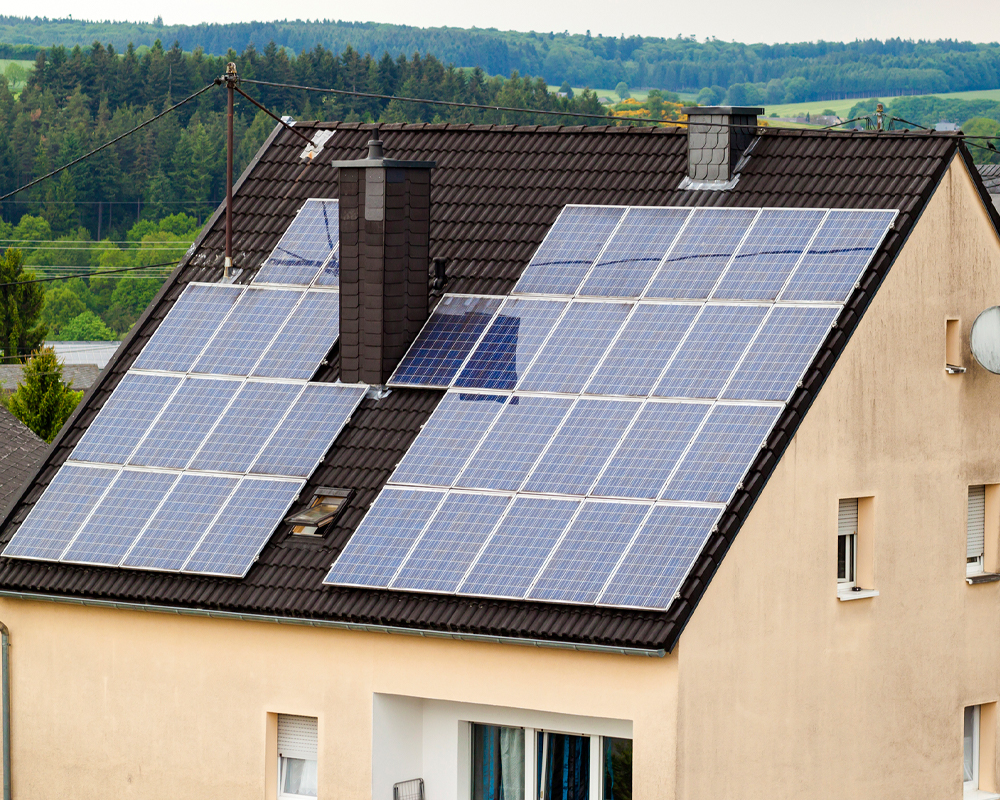Wondering what’s better for Pitkin homes—off-grid or grid-tied solar? Learn the key differences to help you make a smarter solar decision.

Thinking about residential solar energy in Pitkin? You’re not alone. Many home owners in the area are choosing clean energy to lower power bills and reduce their carbon footprint. Butthere’s one question that often pops up: Should you go off-grid or grid-tied?
Let’s break it down in a way that’s easy to understand—and see why grid-tied solar might be the better pick for most homes.
What’s the Real Difference?
Before we dive into pros and cons, here’s a quick summary:
● Off-grid solar systems work alone. They don’t connect to the main electric grid. These systems rely fully on solar panels, batteries, and backup generators.
● Grid-tied solar systems connect toyour local utility grid. You still use solar panels, but if your panels don’t produce enough power (like at night), you can pull electricity from the grid.
Why Grid-Tied Makes Sense in Pitkin
1. Cost Savings
Let’s be honest—solar isn’t cheap to install. And off-grid setups are often more expensive. Why? You’ll need a large battery bank to store power, plus a backup generator for cloudy days. In contrast, grid-tied systems are more affordable and often qualify for tax credits and rebates.
2. Consistent Power, Even on Cloudy Days
Pitkin gets a good amount of sunshine, but even the sun takes a break. With an off-grid system, you could run out of power during storms or long winter nights. Grid-tied systems help you stay connected, so you never have toworry about lights going out when the battery runs low.
3. No Need to Monitor Battery Levels
Living off-grid means managing your power daily. You’ll need to know how much energy you’ve used and what’s left in the batteries. That’s a lot of responsibility. Grid-tied systems let you enjoy the benefits of solar without the stress of running out of power.
What About Power Outages?
You might think off-grid is better during blackouts, but that’s not always true. Grid-tied systems shut off during outages for safety reasons. However, if you want backup power, you can add batteries to your grid-tiedsystem without going fully off-grid.
Thinking Long-Term
With rising electricity prices and more people turning to solar,grid-tied systems offer better flexibility. You can even earn credit for extra power you send back to the grid—called net metering. That’s a win-win: you savemoney and help your community stay greener.
Local Installation Matters
Pitkin has seen a steady rise in residential solar installations,especially grid-tied systems. More home owners are choosing systems that blend convenience, cost savings, and sustainability.
If you're planning for residential solar energy in Pitkin, it’s worth speaking to experts who know the region’s energy needs, snow conditions, and sunhours.
Keep It Smart, Keep It Connected
While off-grid might sound exciting, most home owners in Pitkin will benefit more from grid-tied systems. They’re reliable, easier to manage, andmore budget-friendly.
If you're considering residential solar installations in Pitkin, SoL Energy can help you make a smart choice. With decades of solar expertise and a strong presence in the Colorado mountain region, SoL Energy designs systems that work for your home, budget,and long-term energy goals.
Learn more at sol-energy.com and take the first step toward lower billsand greener living.
FAQs
1. What’s the main difference between off-grid and grid-tied solar systems?
Off-grid systems are completely independent of the utility grid and rely on batteries and generators. Grid-tied systems connect to the local power grid,allowing home owners to draw electricity when solar panels don’t produce enough.
2. Is off-grid solar better for remote homes in Pitkin?
It can be—especially if your home is far from existing grid infrastructure.However, off-grid systems are more expensive due to the need for large battery banks and backup generators,making them less practical for most neighborhoods.
3. Are there financial incentives for grid-tied solar in Pitkin?
Yes! Grid-tied systems often qualify for federal tax credits, local rebates, and net metering, which gives you credit for extra energy sent back to the grid.
4. Can I add batteries to agrid-tied system later?
Absolutely. Many home owners start with a grid-tied setup and add battery storage over time for more independence and energy security.
5. Is solar power still effective in Pitkin’s snowy or cloudy conditions?
Yes. Solar panels work even in cloudy weather. Grid-tied systems offer extra peace of mind, since you can still draw electricity from the grid when sunlightis limited.